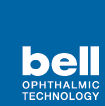You’re always searching for ways to improve glaucoma care, whether it’s a new Octopus perimeter or non-contact tonometer. But for patients, the best medicine might have nothing to do with eye care.
Glaucoma specialist Dr. Anjali Bhorade calls them the five Ds: daily activities, driving, disability from falls, dual-sensory loss and depression.
“As clinicians, we often discuss with patients the results from our evaluations of IOP, the optic nerve, and visual field testing,” said Dr. Bhorade. “However, we should not overlook that glaucoma can affect daily living. By remembering to ask about the 5 Ds, our patients with glaucoma can lead safer and more fulfilling lives.”
One example? Driving. While it’s true that advanced glaucoma might prevent patients from getting behind the wheel, many in the early stages of the disease unnecessarily prevent from themselves from driving. Dr. Bhorade recommends referring patients for a driving evaluation.
Another is helping patients cope with the emotional effects of vision loss. A simple questionnaire, like the Geriatric Depression Scale, can identify patients who might need to see a mental health specialist.
For more on the 5 Ds of glaucoma care, visit Ophthalmology Times.
